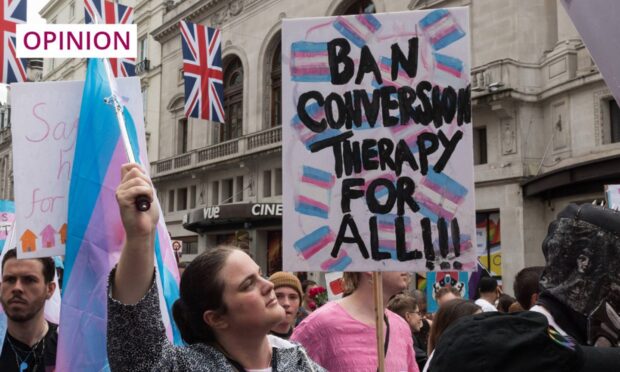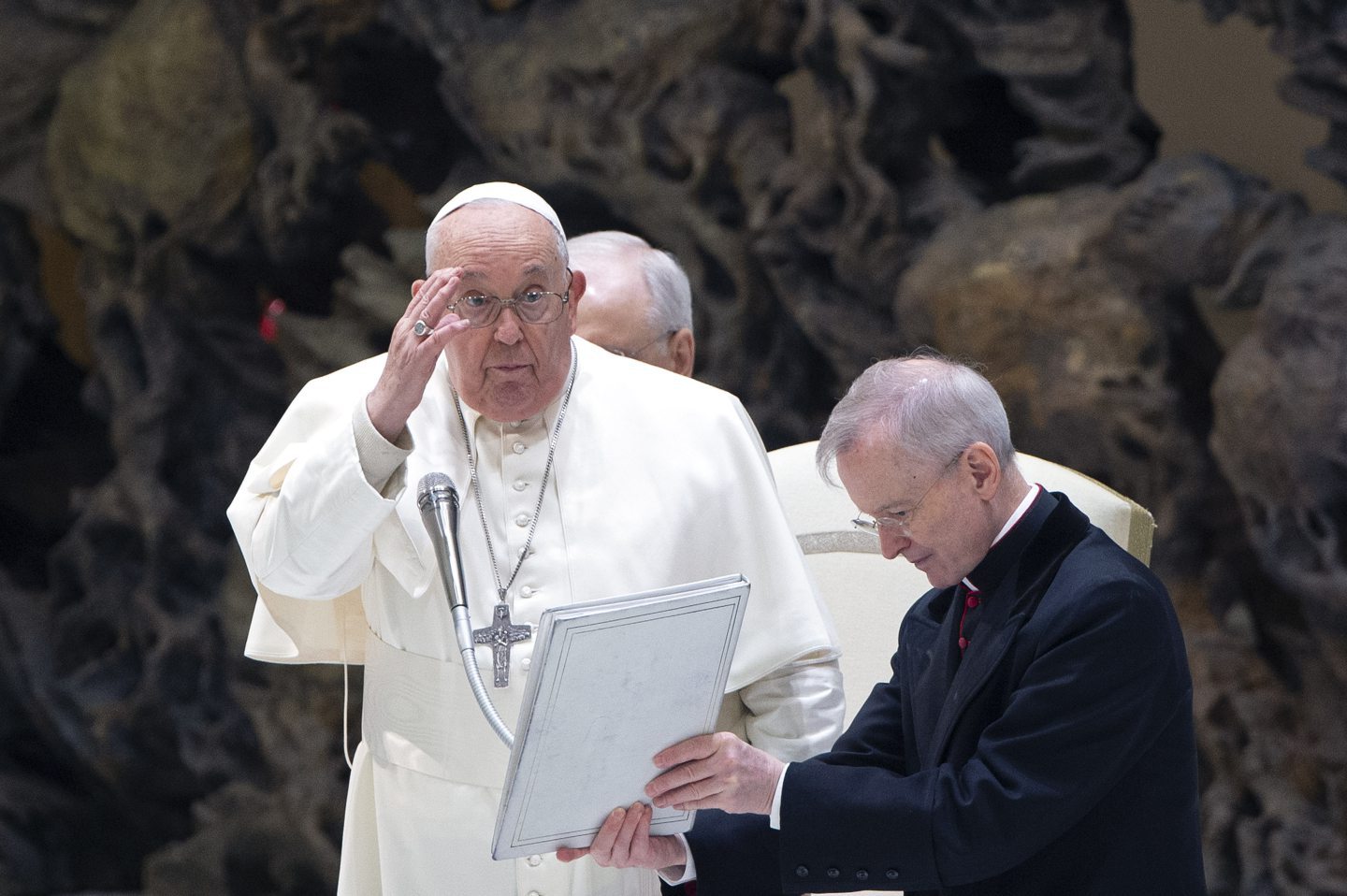I recently watched a short, motivational speech from an inspiring – and funny – speaker called Mohammed Qahtani.
He lit a cigarette and, when the audience reacted, said: “What?” Three times as many people die from diabetes as lung cancer. Who would care if he ate a Snickers bar? Anyway, lung cancer risk was actually determined by DNA, not smoking.
He had given these arguments – even though he’d made them up – to his friends, he said, stubbing out the cigarette. Five believed him. Two took up smoking, he joked, to raucous laughter.
His serious point was the ability of words to influence others – for good or bad. “Your mouth,” he concluded, “can spit venom, or it can mend a broken soul.”
True. So, there is no desire to be gratuitously provocative in what I am about to say. But, given the number of gay men in the Scottish Catholic priesthood, the church’s recent statement resisting the Scottish Government’s proposed ban on conversion practices has an element of turkeys vetoing a ban on Christmas dinner. What level of self-deceptive denial are we dealing with here?
The ban is designed to prevent the psychological damage of “spiritual” guidance that tells gay people – repeatedly – that their sexuality is intrinsically evil and against God’s plan. ( Does anyone else think that if God the Creator exists, He might just be clever enough not to create homosexual people if He wanted?)
There is a pattern here. The church’s right wing Cardinals believe in papal infallibility until a pope says something they don’t like; Pope Francis’s recent decree that gay couples can be blessed in church has been greeted with the outraged equivalent of a cross and a clove of garlic.
In similar fashion, the church praises God’s creative genius until it comes to parts of creation that don’t fit its ideology. It solves this conundrum by claiming homosexuality is not created, but chosen. Self will run riot. Good luck with that one.
The stench of hypocrisy rises from this stance in the same way Pope Paul once claimed the stench of evil rose from the Vatican. The Catholic Church is, supposedly, confused over what is meant by “conversion practice” – a confusion not shared by the Church of Scotland, which supports a ban.
The law recognises words are powerful enough to destroy people
The Catholic Church claims “opinion given in good faith” may be criminalised. But the consultation document makes clear that this is not about outlawing reasonable discussion, guidance or opinion; it’s about outlawing unreasonable pressure on vulnerable people struggling with their sexual identity.
Why doesn’t the church just say outright that it believes in conversion practices; in the notion that you can change sexual identity if you exert enough pressure and foster enough guilt? Instead, it claims its opposition is based on safeguarding libertarian values.
A human being can be controlled with relentlessly negative messages. It’s one of the most psychologically damaging forms of violence
I was brought up in the Catholic Church. I understand its ways. I have certainly investigated its abuses often enough. I can say, hand on heart, that if its leaders are the guardians of our liberties, we should all be very frightened indeed.
All legislation is a tightrope. It risks wrongful prosecutions and miscarriages of justice. We have, for example, laws to prevent coercive control in domestic situations. That is hard to define, but the law recognises the power of words to destroy another person; understands that a human being can be controlled with relentlessly negative messages. It’s one of the most psychologically damaging forms of violence, and doesn’t involve a single raised fist.
The fact that it can be difficult to prove does not mean we don’t try. Our justice system is flawed, but it tries to weed out those abusing the law for their own gain.
Religious beliefs cannot excuse inhumane treatment
In Mohammed Qahtani’s speech, he describes a young man desperate to make his father proud. His father refuses to acknowledge his efforts, so he stops trying. He turns to drugs. Qahtani was at his bedside when doctors tried to save his life; a life his father could have saved with the right words.
Many who have undergone conversion practice describe a similar sense of hopelessness. We all have the responsibility to say the right things, in the right way, at the right time – and that’s hard.
Sometimes, words should be unequivocal – but not destructive. The Catholic Church claims prayer, counsel and “other pastoral means” of persuasion must be accepted. But prayer, counsel and pastoral approaches are not the issue. Control, coercion and manipulation are.
Religious beliefs cannot excuse inhumane treatment – whether of women, gay people or minors – nor the restriction of human rights. Parents, for example, do not have the last word in their children’s medical treatment; the law can, and sometimes does, overrule them.
Religious faiths are entitled to live by their beliefs. But they cannot force others to do so.
If the Catholic Church wants to take a spiritual approach, perhaps it could use scripture less selectively. Let’s include “judge not, and you will not be judged”. If they could spit a little less venom, they might just save a few more broken souls.
Catherine Deveney is an award-winning investigative journalist, novelist and television presenter


Conversation